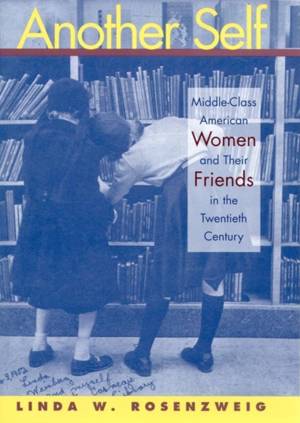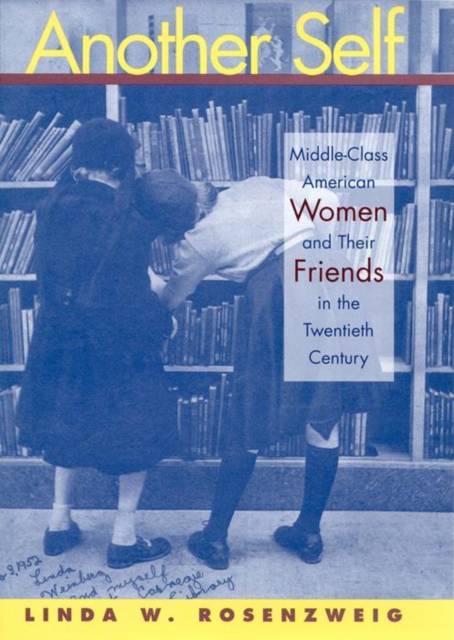
- Retrait gratuit dans votre magasin Club
- 7.000.000 titres dans notre catalogue
- Payer en toute sécurité
- Toujours un magasin près de chez vous
- Retrait gratuit dans votre magasin Club
- 7.000.0000 titres dans notre catalogue
- Payer en toute sécurité
- Toujours un magasin près de chez vous
Another Self
Middle-Class American Women and Their Friends in the Twentieth Century
Linda W RosenzweigDescription
From nineteenth-century romantic friendships to childhood best friends and idealistic versions of feminist sisterhood, female friendship has been seen as an essential, sustaining influence on women's lives. Women are thought to have a special aptitude for making and keeping friends.
But notions of friendship are not constant-and neither are women's experiences of this fundamental form of connection. In Another Self, Linda W. Rosenzweig sheds light on the changing nature of white middle-class American women's relationships during the coming of age of modern America.
As the middle-class domesticity of the nineteenth century waned, a new emotional culture arose in the twentieth century and the intensely affectionate bonds between women of earlier decades were supplanted by new priorities: autonomy, careers, participation in an expanding consumer culture, and the expectation of fulfillment and companionship in marriage. An increased emphasis on heterosexual interactions and a growing stigmatization of close same-sex relationships fostered new friendship styles and patterns.
Drawing on a wide range of primary sources including diaries, journals, correspondence, and popular periodicals, Rosenzweig uncovers the complex and intricate links between social and cultural developments and women's personal experiences of friendship.
Spécifications
Parties prenantes
- Auteur(s) :
- Editeur:
Contenu
- Nombre de pages :
- 238
- Langue:
- Anglais
- Collection :
- Tome:
- n° 6
Caractéristiques
- EAN:
- 9780814774861
- Date de parution :
- 01-08-99
- Format:
- Livre relié
- Format numérique:
- Genaaid
- Dimensions :
- 159 mm x 235 mm
- Poids :
- 476 g

Les avis
Nous publions uniquement les avis qui respectent les conditions requises. Consultez nos conditions pour les avis.






